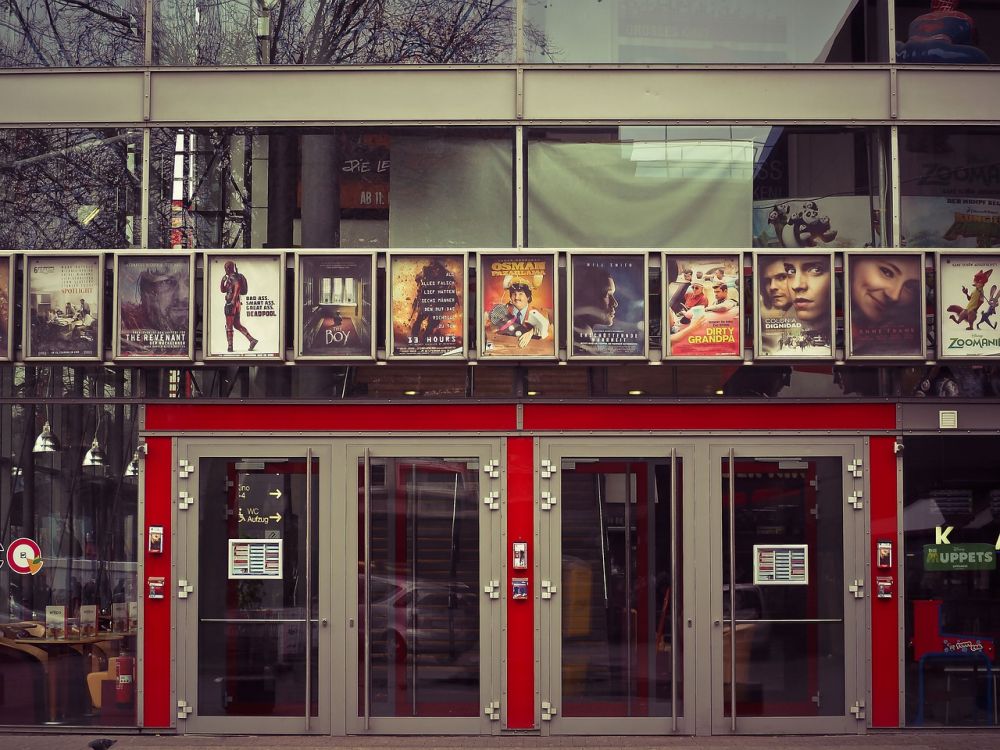Amsterdam Film: A Journey Through History, Culture, and Creativity

Introduction:
Amsterdam, the vibrant capital city of the Netherlands, is renowned for its picturesque canals, tulip fields, and charming architecture. However, the city’s cultural scene extends far beyond its iconic landmarks. With a rich history in film production and a thriving independent cinema culture, Amsterdam has emerged as a hub for filmmakers and cinephiles alike. In this article, we will delve into the world of “Amsterdam Film,” exploring its significance, evolution over time, and the key elements that make it a captivating subject for cinema enthusiasts worldwide.
I.
Understanding the Essence of Amsterdam Film

:
1. Charming Visual Aesthetics: Amsterdam’s unique architecture, with its narrow houses, enchanting canals, and bustling streets, has been an integral part of numerous films throughout the years. These visual elements not only provide a scenic backdrop but also contribute to the city’s identity and atmosphere captured onscreen.
2. A Vibrant Creative Community: Amsterdam boasts a thriving artistic community comprising filmmakers, screenwriters, actors, and other industry professionals who have played a pivotal role in shaping the city’s film scene. This community continuously pushes boundaries and fosters innovation, resulting in a diverse range of cinematic experiences.
3. Embracing Diversity: Amsterdam serves as a melting pot of cultures and perspectives, reflected in the films produced within its borders. From stories exploring social issues to those celebrating cultural diversity, Amsterdam Film showcases the importance of inclusivity and representation in storytelling.
II.
The Evolution of Amsterdam Film
:
1. Early Beginnings: The origins of filmmaking in Amsterdam can be traced back to the early 1900s when local entrepreneurs recognized the potential of this new medium. As silent films gained popularity, several cinema houses and production companies emerged, catering to a growing audience hungry for visual entertainment.
2. Golden Age of Dutch Cinema: The 1920s witnessed the rise of Dutch cinema, with influential directors like Joris Ivens and Louis H. Chrispijn producing groundbreaking films that garnered international acclaim. This era marked a significant period of artistic experimentation and innovation in Amsterdam Film.
3. World War II and its Impact: The Nazi occupation during World War II was a challenging period for Amsterdam’s film industry. Many talented professionals were persecuted, and censorship stifled creative expression. However, a handful of filmmakers, including the renowned Joris Ivens, managed to create resistance films to document the harsh realities of the occupation.
4. New Wave and Beyond: In the 1960s and 1970s, Amsterdam witnessed a cinematic renaissance with the emergence of the Dutch New Wave. Directors like Paul Verhoeven and Fons Rademakers challenged conventions with their provocative, thought-provoking films, addressing social, political, and cultural issues relevant to the time.
5. Contemporary Amsterdam Film: Today, Amsterdam remains a vibrant hub of filmmaking, hosting renowned film festivals such as the International Documentary Film Festival Amsterdam (IDFA) and the Netherlands Film Festival. The city continues to nurture emerging filmmakers, providing them with platforms to showcase their work and contribute to the city’s ever-evolving cinematic landscape.
III.
Enhancing Search Visibility and Featured Snippet Potential
:
Structuring the article to increase the likelihood of appearing as a Featured Snippet in Google search results:
1. Utilizing bulleted points to highlight critical information and key takeaways:
– Amsterdam Film captures the city’s charming aesthetics and vibrant creative community.
– The city’s diverse culture and history are reflected in its films.
– Amsterdam Film’s evolution spans from the early 1900s to contemporary times.
– The Dutch New Wave marked a significant milestone in Amsterdam’s cinematic journey.
– The city continues to thrive as a hub for filmmakers, hosting renowned film festivals.
2. Incorporating and H2 tags to optimize readability and categorize content effectively:
Understanding the Essence of Amsterdam Film
The Evolution of Amsterdam Film
Enhancing Search Visibility and Featured Snippet Potential
Conclusion:
Amsterdam Film encapsulates the rich tapestry of the city’s history, culture, and creative spirit. From its charming visual aesthetics to its diverse storytelling, the films produced in Amsterdam serve as a testament to the city’s artistic significance. As a hub for emerging talents and home to prestigious film festivals, Amsterdam continues to nurture its film industry, ensuring that its cinematic legacy remains alive and vibrant for years to come. So next time you explore Amsterdam, take a moment to appreciate the city’s celluloid wonders and immerse yourself in the captivating world of Amsterdam Film.





